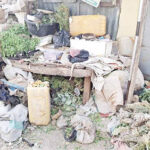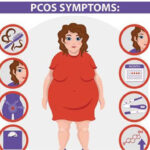African health ministers have adopted a 10-year strategy to strengthen their disease surveillance and response, and restrict the devastation caused by outbreaks.
But nations will need to invest around N1267 a head a year — that’s around $3.5.
An acute event that impacts public health is reported on the continent every four days, according to the World Health Organisation.
It also says emerging and re-emerging infectious diseases and other public health emergencies were on the rise.
Many are predictable in some areas, others are not.
It is linked to the growth of cross-border movements and international travel, increasing human population density and informal settlements along with climate change impacts and changes in the way humans and wild animals interact.
Between 2016 and 2018, at least, eight in 10 public health emergencies in the region were due to infectious diseases.
The new strategy adopted by health ministers at the 69th session of the WHO Regional Committee for Africa in Brazzaville, calls for countries to have effective surveillance system, which can track common diseases and set off alarms.
It is to ensure disease epidemics are contained in time, or detected early and investigated.
The Regional Committee is the governing mechanism involving health ministers from all 47 Member States of the WHO African Region.
“The current Ebola outbreak in the Democratic Republic of the Congo is a poignant reminder of the importance of a strong surveillance system,” said Dr Matshidiso Moeti, WHO Regional Director for Africa.
“Only when every case is promptly detected, quickly hospitalized and offered timely medical care – and all close contacts vaccinated and properly monitored – will the Ebola outbreak end. Equally important, devastating outbreaks can be ‘nipped in the bud’ if cases are quickly detected before they widely spread in communities.”
The strategy will require countries to invest in outbreak preparedness. Some 25 countries in the region have developed a national action plan for health security.
WHO estimated investment needed for epidemic preparedness at around $3-4 billion a year — that’s less than $3.5 dollar per person in the region per year.
This translates into $2.5–3.5 per person per year, suggesting that the investment case for pandemic preparedness is an affordable public health good, a report from the meeting said.
Member states have signed up to the International Health Regulations (IHR) and are legally bound to work together to stop the international spread of disease.
But a concern remains that none meets all required IHR capacities, meaning no country has the full capacity needed to prevent outbreaks from spreading beyond their borders.
Only six countries have mobilized adequate resources to implement IHR, and fewer than a third of the member states have a functional laboratory system.
“With this new blueprint for strengthening Africa’s surveillance and response to disease in hand, we hope countries will make the investments needed to beef up their capacities,” said Moeti.
“Paying now for robust surveillance will create a huge dividend in better health for Africans, not only now but in the future.”

 Join Daily Trust WhatsApp Community For Quick Access To News and Happenings Around You.
Join Daily Trust WhatsApp Community For Quick Access To News and Happenings Around You.


